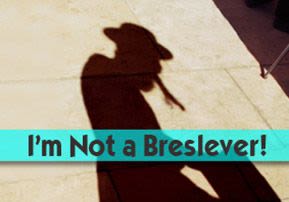
I’m Not a Breslever!
People like to tell themselves, “I’m not a Breslever, so all that stuff about talking to Hashem and having emuna really doesn’t apply to me...”

I’m not a ‘Breslever’. My husband doesn’t go to a Breslev synagogue; my kids go to the local ‘Mamlachti Dati’ religious public school; none of my friends are ‘Breslevers’ (although thank G-d, a lot of them are now trying to talk to Hashem).
Again, I am not a ‘Breslever’. And this seems to drive a lot of people absolutely bonkers.
“Oh, stop pretending! Your husband goes to Uman for Rosh Hashana! You’re always talking about emuna, and hitbodedut, and Rabbi Nachman! Of course you’re a Breslever!”
I’ve been pondering this phenomenon for some time: why is it so important for these people to categorise me? To put me and my family in the ‘Breslev’ box? Let’s be clear: I absolutely love Rabbi Nachman’s teachings, and the tremendous wisdom to be found in Breslev chassidut, particularly the teachings of Rabbi Shalom Arush.
They have changed my life and my relationship to Hashem in an almost indescribably positive way. I try to do an hour of hitbodedut a day; I listen to every emuna shiur I can get my hands on; I’m reading every book I can by Rav Arush, Rabbi Brody and other Breslev authors; and I have a Likutei Moharan on my bedside table.
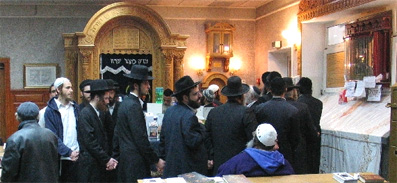
Above image – Breslevers dancing at the holy gravesite of Rebbe Nachman in Uman. Image courtesy of Emuna Outreach
But I’m not a ‘Breslever’.
I think people want to tag me as a ‘Breslever’ because then, they’ll find it much easier to ignore me. Then, they can tell themselves: “I’m not a Breslever, so all that stuff about talking to Hashem and having emuna really doesn’t apply to me.”
The trouble is, all the stuff about talking to Hashem and having emuna really isn’t ‘Breslev’ – it’s Judaism.
One of our biggest sages in modern times, the Chofetz Chaim, used to spend two hours a day talking to Hashem and doing a thorough ‘Cheshbon Hanefesh’. He wasn’t a Breslever.
Go back a bit further to the Baal Shem Tov, the ‘father’ of chassidut. He used to do hitbodedut, and he used to encourage all of his disciples to follow suit. He wasn’t a Breslever.
I recently read a biography, published by Lubavitch, about the Alter Rebbe, the founding father of Chabad. Low and behold, in that biography the Alter Rebbe is quoted as telling his followers that for mundane, material matters, they should be addressing their requests and concerns directly to Hashem. The Alter Rebbe only wanted his followers to come to him if they were having a struggle with something spiritual, and needed his guidance on the matter. According to that self-same biography, the Alter Rebbe also used to spend hours at a time in solitary ‘meditation’ with G-d. And he certainly wasn’t a Breslever.
King David used to pour his heart out to Hashem all the time – and the result is the book of Tehillim. Was he a Breslever? Was Moshe Rabbeinu, who spent 40 days at a trot up Mount Sinai, talking directly to Hashem? How about our matriarchs and patriarchs, who spent every waking moment talking with Hashem? Avraham was in the middle of his hitbodedut with Hashem when his three Angelic guests appeared, on their way to destroy Sodom and rescue Lot. Was he a Breslever?
The point I’m trying to make here is that the label really doesn’t matter. Rabbi Akiva Tatz – another tremendously learned, wise person who is definitely not a Breslever – recorded a whole six part lesson on the Principles of Faith, where he teaches that the whole of Judaism, the whole of our relationship with Hashem, can be boiled down to one fundamental mitzvah. What is that mitzvah? It’s emuna.
So when people try to distance themselves from emuna, prayer and talking to Hashem because they are ‘Breslev’ concepts, what they are really doing is distancing themselves from authentic Judaism; and worse, from Hashem Himself.
Emuna is not an optional extra – it’s the first of the ten commandments. It’s the foundation of the Rambam’s 13 Principles of Faith. It’s the key that you need to make everything else fit together, and to really work.
Emuna is not only for Breslevers. Prayer is not only for Breslevers. It’s for anyone who wants to develop the spiritual side of themselves, to build a genuine relationship with Hashem, and to achieve their ‘tikkun’, or reason for being here.
Our sages teach that there are 70 ‘faces’ to the Torah. This is always explained as meaning that there are 70 different ‘paths’ towards developing a relationship with Hashem, and different paths will suit different people. Many people, particularly ‘religious’ people, are very quick to quote this teaching as a justification for why they don’t need to put the emphasis on having emuna, or talking to Hashem. But Breslov teachings aren’t about the path – they’re about the destination.
Your path includes a yeshiva education, white shirt, black trousers and a fedora? Great! But don’t forget, the destination is Hashem. Your path includes a guitar, sandals, and some soul-stirring nigunim? Wonderful! But don’t forget, the destination is Hashem. Your path is leading you through a challenging career, mortgage payments and luxury holidays? Fine – but don’t forget, the destination is Hashem. Your path is taking you into very dark places, difficult times and despair – don’t worry: the destination is Hashem.
My path, for example, has lead me through three different countries, many different communities, many challenging circumstances, and many levels ‘up’, to a place where each day now, I’m having a clearer picture of what Hashem expects from me.
I’m not a Breslever (yet…). What I am, though, thanks to the Breslev teachings, is a much happier, contented and sincere Jew.
Too many people live their lives ‘in the box’, trying to live up to or live down the labels they were given, or that they gave themselves. You don’t have to be a Breslever to talk to Hashem and to work on your emuna. All you need is a desire to live a much happier, more meaningful and sweet life. So throw the box away, come out into the sunshine and talk to your Creator.







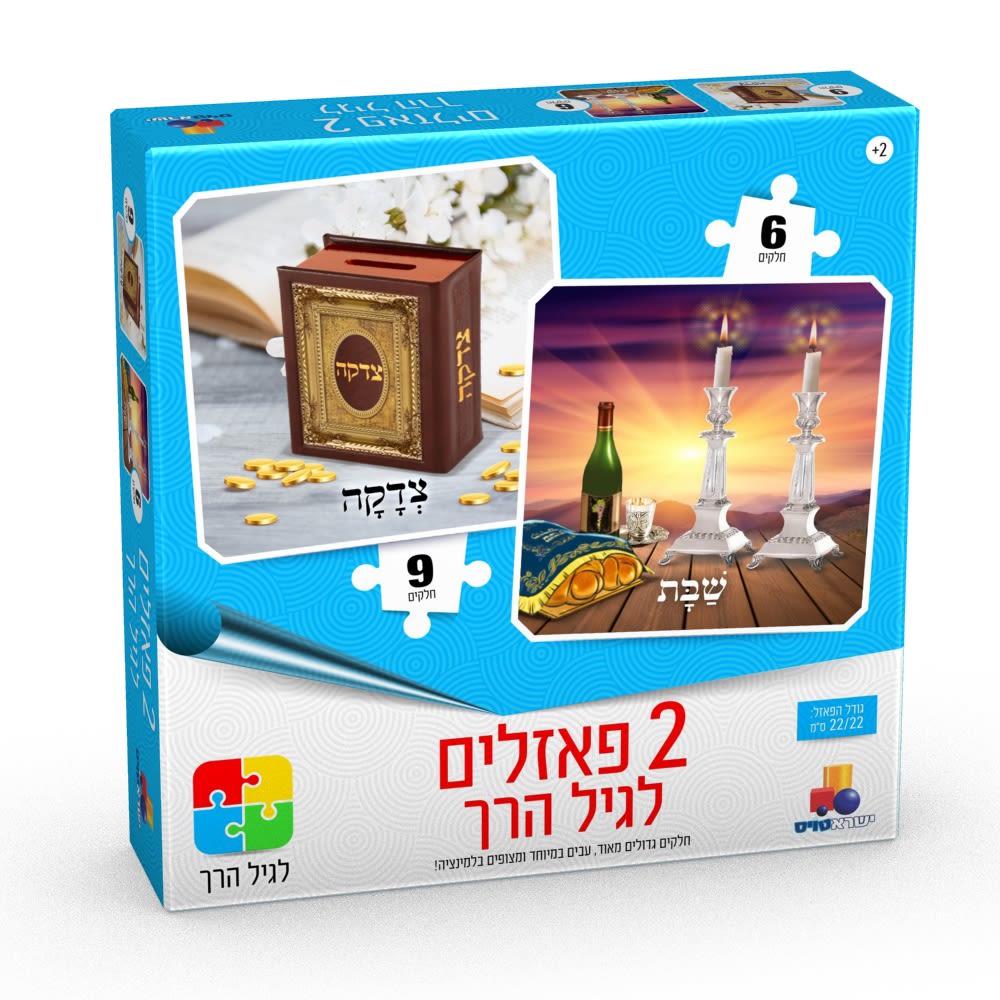
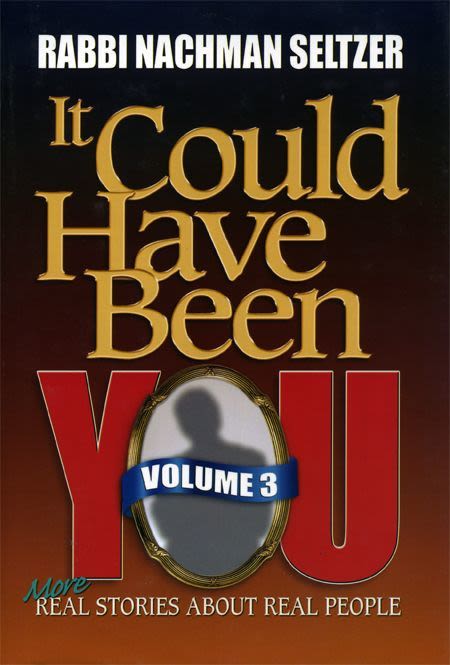

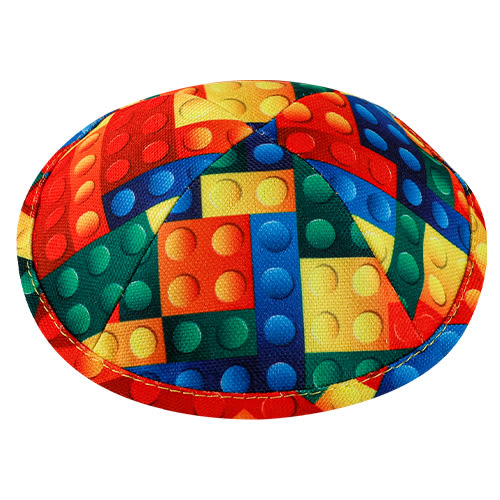
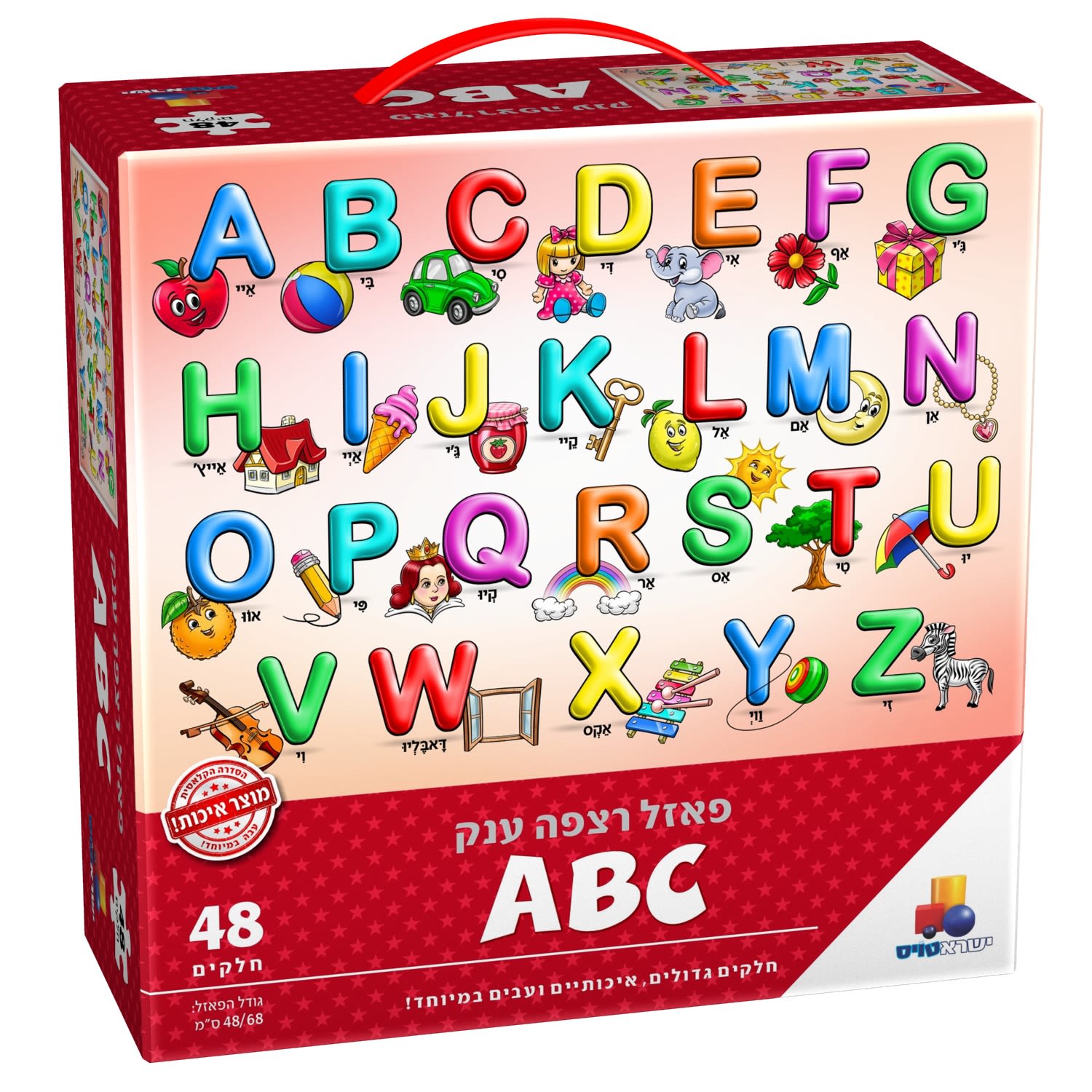
Tell us what you think!
Thank you for your comment!
It will be published after approval by the Editor.